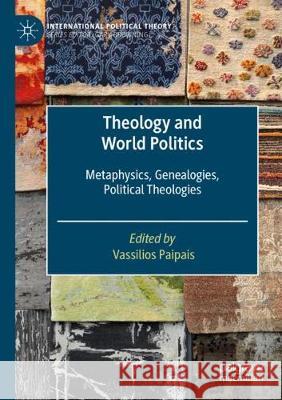Theology and World Politics: Metaphysics, Genealogies, Political Theologies » książka
topmenu
Theology and World Politics: Metaphysics, Genealogies, Political Theologies
ISBN-13: 9783030376048 / Angielski / Miękka / 2021 / 349 str.
Theology and World Politics: Metaphysics, Genealogies, Political Theologies
ISBN-13: 9783030376048 / Angielski / Miękka / 2021 / 349 str.
cena 402,53
(netto: 383,36 VAT: 5%)
Najniższa cena z 30 dni: 385,52
(netto: 383,36 VAT: 5%)
Najniższa cena z 30 dni: 385,52
Termin realizacji zamówienia:
ok. 22 dni roboczych
Dostawa w 2026 r.
ok. 22 dni roboczych
Dostawa w 2026 r.
Darmowa dostawa!
Kategorie BISAC:
Wydawca:
Palgrave MacMillan
Seria wydawnicza:
Język:
Angielski
ISBN-13:
9783030376048
Rok wydania:
2021
Wydanie:
2020
Numer serii:
000400843
Ilość stron:
349
Waga:
0.43 kg
Wymiary:
21.01 x 14.81 x 1.91
Oprawa:
Miękka
Wolumenów:
01
Dodatkowe informacje:
Wydanie ilustrowane











